- Home
- Elizabeth Goudge
Gentian Hill Page 6
Gentian Hill Read online
Page 6
floor where they worked, who could not enjoy this lovely slow ascension to restfulness and peace.
She went up the old oak staircase very slowly, pretending she was an angel, enjoying the contrast between her stately progress now and the bustle of a few moments back and the further activity that would come before she slept. The candlelight gleamed on the polished stairs and the dark paneling on either side. Ahead of her there was a window with a deep window seat, where the staircase widened out on either side
to the passage that ran the length of the house, and through it she could see the sky powdered with stars. The night was so still that, when she stood at the head of the stairs to listen, she could hear no sound except the rustle of a mouse in the wainscot. Hodge came beside her and leaned his head against her. They stood motionless for a full five minutes, and silent except for a few snorts from Hodge. Stella was no longer thinking of anything in particular, she was just absorbing the starlight and silence, and letting it sink down inside her to liberate that deep peace in which her being was rooted like a tree. Adventurous spirits tend to grow arid with too much activity, but Stella had early learned how to refresh hers. So had Hodge. He did it through his nose, and the smell of staff light was to him particularly refreshing. When Stella suddenly swung around and scurried down the passage, he lingered for a moment for a final sniff before he turned and padded after.
CHAPTER IV
1
Stella's room was a closet opening out of the big bedchamber where her foster parents slept, and she had to go through their room to reach it. She thought this best bedchamber a most imposing place with its big tent bed hung with maroon curtains, its beautiful tallboy, and bow-fronted chest of drawers of shining mahogany. Her own little closet was dainty as the inside of a flower or seashell, for Mother Sprigg had made white muslin curtains for the small bed, and a patchwork quilt of pale soft colors. Father Sprigg himself had made the dressing chest, the little chair, and the stool for the ewer and basin, and painted them pale green. There were flowered curtains at the windows and the plastered walls were white. The only notes of bright color in the room were the gay rag rug upon which Hodge slept and Stella’s hooded scarlet cloak hanging on a peg behind the door.
She made no attempt to go to bed; instead she put on her cloak and opened the window. It was a dormer window that opened like a merry eye in the thatch that roofed the farm. The thatch was old, hillocky in places, and sloped beneath the window at an incline that was no steeper than that of a hayrick, and just as easy to climb. Stella climbed it almost nightly, for she could climb as well as run with remarkable agility. And so could Hodge. From the moment when he first learnt to stagger, he had been following Stella wherever she went, and she went to such extraordinary places at times that throughout the years he had been slowly adding to the natural powers of a dog those of many another creature too. Besides climbing like a squirrel, he could now in company with Stella wriggle like a worm, leap like a toad, and roll up into a ball like a hedgehog. Such were their accomplishments that whatever they did they seldom got caught.
They got out of the window and stepped nimbly down, digging their toes into the strong old thatch. Where the roof ended, a wisteria vine, almost as old as the house itself,
grew out of a flower bed in the yard below, its branches lying like great knotted ropes against the farmhouse wall. Stella, going down feet first, found it as easy to negotiate as a ladder. Hodge, going down nose first, found it harder, but Stella kept one hand gripped upon the scruff of his neck, and he managed.
They reached the yard in no time at all and retrieved the plate of scraps from behind the mounting block, carrying it to the far end of the yard where Daniel, the yard dog, was lying in his kennel waiting for them, his chin resting on his extended forepaws and his eyes very bright. As soon as he saw them, he shot out of the kennel to the full extent of his chain, and in a moment he was wolfing up the contents of the plate as though he had never had a good square meal in his life. Like all the animals at Weekaborough Farm, he was in actual fact adequately fed and cared for, though not pampered, but he always had an insatiable appetite and always looked a sight. You could feed him with everything in the larder, you could brush him till your arms ached, you could bathe him daily, and still he would look like nothing on earth. He was black and rusty, all his bones showed through his skin, his legs stuck out at extraordinary angles, his tongue hung untidily out of the side of his mouth, and his long ragged tail perpetually tripped him up. He wore a permanent worried frown upon his forehead, and his ears flapped in the wind like distress signals. He had arrived at Weekaborough Farm three years ago as a puppy, conveyed thither by Hodge, who had found him somewhere and had picked him up in his mouth and brought him home. He was not much use, and
seemed a little weak in the head, but he was affectionate and well-meaning, and everyone was fond of him.
While he ate, sweeping the food untidily into his mouth with swirling movements of his long tongue, his ragged tail rotating like a windmill in the rear, Stella and Hodge watched him with a look of humble apology in their eyes. Class distinctions were abhorrent to them. It did not seem right that there should be indoor and outdoor dogs and cats. Why should Hodge and Seraphine sleep indoors, petted by the family, while Daniel and the stable Cats were not allowed to set foot across the back doorstep? Daniel’s rightful appearance and slight mental deficiency were not his fault, and the stable cats would have been just as sleek as Seraphine had they had her advantages. It just was not right, and as soon as Daniel had polished off the last scrap of his meal, Stella knelt down on the cobbles beside him and gently pulled his distressful ears and smoothed his worried frown. "Never mind, Daniel," she whispered, "tomorrow I will take you for a walk." He never seemed to understand what she said to him as Hodge did, but he could recognize the promise of something good in the tone of her voice, and he went back inside his kennel the wrong way ’round, so that his tail could poke through the hole and rotate outside, which was always his sign of happiness.
Stella fetched the bowl of milk from behind the mounting block and carried it carefully across the yard to the stable door, which Hodge opened for her by standing on his hind legs and lifting the latch with his nose. The stable was never locked, and neither was the back door of the farmhouse. They both opened into the yard, which was fortified on the north and south by the stables and the house and to east and west by great walls, and had strong doors in the Cast wall that were secured at night by the trunk of a tree laid across iron bars. The yard had been built this way so that in time of war all the cattle could be driven into it and kept safe.
The stable by night was an enchanted place, dim and mysterious, its daylight russet and gold and brown overlaid by the silver moonlight shining through the small, high, unglazed windows that opened upon the outside world. The moonlight transmuted the color so that it was no longer color but the phantom of it, knocking at one’s heart with a sort of sadness, like that spectrum that sometimes encircles the moon with the faint echo of an April rainbow. The shadows were deep, soft as velvet, not hard like the daylight shadows. The sounds were muted, breathings and rustlings that seemed to lie as lightly upon the silence of the night as did the moonbeams upon the velvet shadows. The scent of the hay in the mangers was a sleepy smell, and the smell of the clean and healthy beasts, whom Stella could dimly see there in their stalls, was good and wholesome.
At Weekaborough Farm they had a couple of oxen, Moses and Abraham, for the ploughing and for drawing the sledge carts used at harvest time, two little agile Devon pack horses, Shem and Ham, one dun and one red, and Father Sprigg’s beautiful old mare, Bess. Stella knew them all intimately and loved them well, but she did not stop to talk to them now, for they were tired after the hard day’s work and she was pressed for time. She just looked affectionately at their gleaming Hanks and swinging tails, and went on down to the empty stall at the far end where the stable catsslept, and where at this hour they were always eagerly waiting for th
eir milk.
She could see their eyes shining like emeralds in the shadows, and as soon as she came to them, they ran to her and began weaving ’round and ’round against her legs, pushing against her, purring loudly, whiskers protruding, tails aloft, soft paws planted with a steady rhythm that kept time with the organ hum of their vibrating vocal chords.
She set the bowl down on the floor and there was instant silence. The cats sank their chins into the milk and absorbed in silent ecstasy. Stella, with Hodge alongside, her left hand resting lightly on his back, stood regarding them. They were called Shadrach, Meshach, and Abednego, and they were a sorry crew, scarred by many battles. Stella had named them, as she had named all the animals at Weekaborough Farm, drawing her inspiration from the beloved Old Testament. Shadrach was black, and had lost the tip of his tail. Meshach was ginger, and had lost an ear. Abednego was black, with what was intended to be a white patch under the chin, but try as he might he couldn’t get at it with his tongue to give it a washing, and it remained of a neutral tint. He was always trying, poor soul, and had a permanently cricked neck in consequence. They ought to be indoor cats, all of them, Stella thought compassionately. Why should they have to live outside, lighting rats, and getting all dirty and torn? Cats were not meant to live outside, ratting; they were meant to live inside, mousing. It just wasn’t fair. She did what she could no make it up to them, but still it wasn’t fair.
2
The most extraordinary sensation went up Stella’s left arm, a queer prickly sensation that reached her brain as a sudden feeling of panic. The hair upon Hodge’s back was rising beneath her hand, and he gave a loud growl deep in his throat. She looked at him. His head was raised and his eyes were fixed upon the small window high up in the wall above the manger, one of the windows that gave upon the outside world and through which the moonlight shone. A man’s head had come between them and the moonlight, held in the square of the window as in a picture frame. Stella had a sudden impression of a thin face, wild and dark, and then she was so frightened that everything was suddenly
blurred and she could not see any more, but she could still hear Hodge’s low growl and feel his stiff hair beneath her hand. But she did not cry out, for she was a brave little
girl. She stood quite still, lighting her panic until the mist cleared, the dark face came back, and she could put a name to her fear.
"Bony," she whispered.
It had come at last. The French had landed. She had grown up with the fear of invasion as a permanent dark background to the happy life of the farm. The English Channel, the only barrier between England and her enemies, was only a few miles away. All her life she had never gone to church without seeing the pikes stored there in readiness for invasion. She had watched men drilling, Father Sprigg among them, and had heard tales of the dreadful press gangs. From the farm windows she could see Beacon Hill, where there was one of the great bonfires that would be lit when the French came, flashing the news in lire across the country. There was always a man there, watching the sea. She had been only a small child during that winter when the enemy transports had been waiting at the ports to carry thousands of soldiers across the Channel, but she could remember the great friendly storm that saved them, and the thanksgiving in the church. But the worst invasion scare had been only a year ago. They had said then that 150,000
Frenchmen were assembled at Boulogne, and that Bony had selected Torquay as the best landing place. Father Sprigg had left home altogether then, for the South Devon militia was guarding the batteries along the coast, and arrangements had been made to send all the children and old people away to Dartmoor. She had watched their biggest waggon being got ready for the journey and had seen Mother Sprigg going about white-faced and tight-lipped, and Madge crying. But still it had not happened.
And now it had happened, on this quiet October night when everything had seemed so safe and happy. That dark face up there was a Frenchman’s face, and soon an army of them would be battering at the closed doors of the stableyard, and the great tree trunk that barred it would give way before the onslaught, and they would all be killed.
As suddenly as it had arisen, her fear died. As panic had come to her from Hodge, so now he gave her reassurance. The hair on his back lay down again and his growls subsided. His head was still lifted to the window, but his tail was wagging.
"Dammee!" croaked an indignant voice above her. "All that milk fed to a lot of mangy old cats! And me so empty that my stomach is flapping loose and sticking to my backbone.’ He paused, visited by a certain delicacy at this point. She was quite a little girl, he suddenly perceived. "Why aren’t you in bed?" he finished, his hoarse croaking voice ending in a sudden squeak.
The squeak betrayed him. He wasn’t a man at all, let alone a Frenchman, he was only a boy, an English boy whose voice had not yet finished breaking-a dirty disreputable English boy with a sunburnt face, wild bright dark eyes, and lank dark hair tossed untidily on his forehead.
“Why aren’t you?" retorted Stella with spirit.
He laughed, his white teeth flashing in his dark face. "Well, you see, my bed is the lee side of a haystack, and I don’t have to go to it if I don’t want to."
"How did you get up to that window?" demanded Stella, thinking of the high wall outside, going up sheer from the lane.
"Climbed the wall," said the boy. "Plenty of crannies in it. Thought I might get through and find something to eat. But the window is too small."
Stella noticed that his hands, holding to the window-ledge, were white and bloodless. He was clinging on with fingers and toes like a monkey, and she felt respect for one whose acrobatic powers equaled her own, and even surpassed them.
She did not believe that she could have climbed that wall. Beside her, Hodge was swinging his tail faster and faster, if and she knew his judgment of character to be unerring.
“If you don’t get down, your fingers will go numb and you will fall," she said. "Drop down into the lane again and I’ll bring you out something to eat."
"Will you? Or will you bring the farmer out on me? He’s sent me packing once already. Next time he’ll collar me for the press gang."
The boy looked at her, his dark eyes searching her for the truth. She did not answer, but for a few moments she looked back at him, her glance clear, unwavering, and a little scornful because of his question. Then she looked down at Shadrach, Meshach and Abednego, whose pink tongues were patiently pursuing the last drops of milk ’round and ’round their empty bowl, and bending, she gently caressed their heads, just as she always did each night, and picking up the dirty dilapidated Abednego held him for a moment against her breast.
The face of the boy at the window crumpled like the face of a child who is going to cry, then he abruptly disappeared. The little girl had been loving the Cats just as she always loved them every night, making no special display for his benefit, but all the words in the world could not have told him more clearly how passionate was her concern for all the vagabond creatures who were outside the warm bright circle of love and home. She’d not betray him. Not she. She’d die first. From that moment he loved her.
3
For the second time that night, Stella and Hodge raided the larder, and this time Stella was afraid their thefts were noticeable. Mother Sprigg was a generous housekeeper, and the inroads made for the benefit of Daniel and the cats made little impression on the plenty of the larder, and she never seemed to notice them. But Stella did not see that she could fail to notice this time, with a huge wedge of pigeon pie gone, a hunk of bread and cheese, and a couple of apples. But she would abide the consequences. That boy outside, right outside, more outside even than Daniel and the cats, had got to be fed.
She went out into the yard again, carrying the loaded plate and a jug of milk from the dairy, and crossed over to the barred door. Here she set the food down on the cobbles
and considered the problem before her. How was she to get the trunk of the tree lifted out of position? It must be done
somehow, for she could not get to the front door without
either climbing back up the roof to her room, which would be impossible with both hands occupied, or passing through the kitchen where Father and Mother Sprigg were sitting. Her foster-parents were kind-hearted, but during these last dangerous years the country people had had so many unpleasant experiences with mutineers, spies, deserters, and
escaped prisoners that now they gave scant encouragement to any unknown vagabond. It was the yard door or nothing, and Stella went to it with a will, bending down and getting
her back and head beneath the tree trunk. Hodge did the same, and together they heaved and strained until there was no more strength left in them. But they did it. The tree
trunk lifted off the iron bars at last, and Stella eased it to the ground without too much noise. But she felt sick and dizzy when she had done it, with the blood drumming in
her ears and her breath coming in painful gasps, and it was all she could do to pull the great door open. But she did this too, and picking up the jug and plate again, made her
way out into Pizzle Meadow that bordered the yard upon the north. Through it a cart track led to the gate opening upon the lane which ran along behind the stables and was the western boundary of Weekaborough Farm.
Stella hurried along the cart track to the high, padlocked gate and the thick thorn hedge, and after standing on tiptoe to put the plate and jug on top of one of the strong old stone pillars that supported the gate on either side, she climbed up, dragging Hodge after her, and fell off the other side into the grass that bordered the lane. Strong bony hands lifted her and set her on her feet again, and for a brief moment their grip reminded her of her first memory, her mother’s arms holding her so tightly, and her heart constricted with sudden pain, so that she was more breathless than ever.

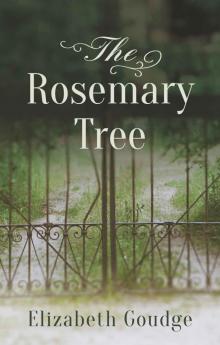 The Rosemary Tree
The Rosemary Tree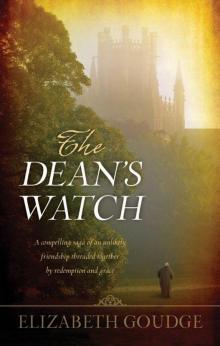 The Dean's Watch
The Dean's Watch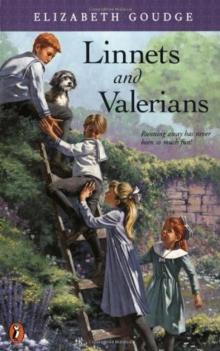 Linnets and Valerians
Linnets and Valerians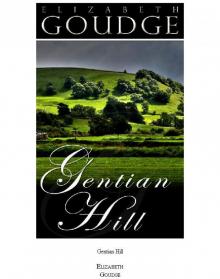 Gentian Hill
Gentian Hill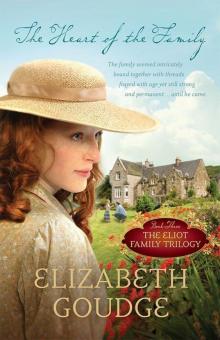 B00DRI1ZYC EBOK
B00DRI1ZYC EBOK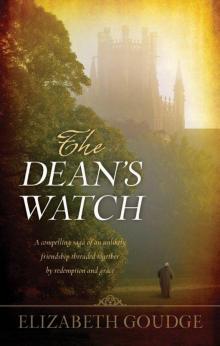 B008O6ZWTG EBOK
B008O6ZWTG EBOK The Scent of Water
The Scent of Water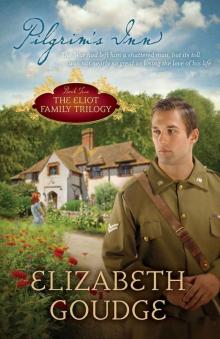 Pilgtim's Inn
Pilgtim's Inn Island Magic
Island Magic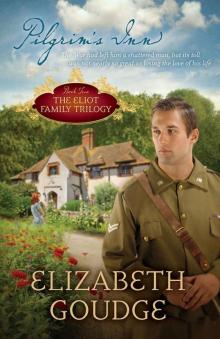 Pilgrim's Inn
Pilgrim's Inn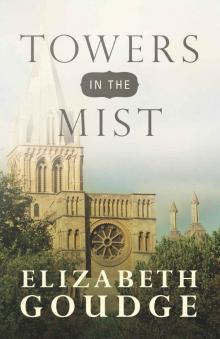 Towers in the Mist
Towers in the Mist Green Dolphin Street
Green Dolphin Street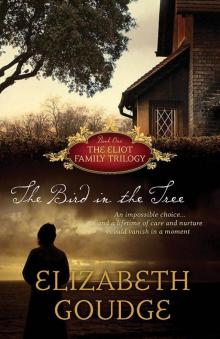 The Bird in the Tree
The Bird in the Tree The Child From the Sea
The Child From the Sea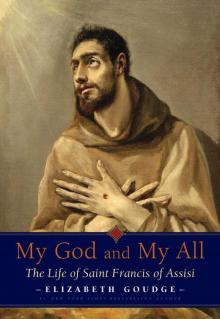 My God and My All: The Life of Saint Francis of Assisi
My God and My All: The Life of Saint Francis of Assisi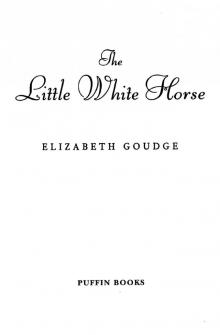 The Little White Horse
The Little White Horse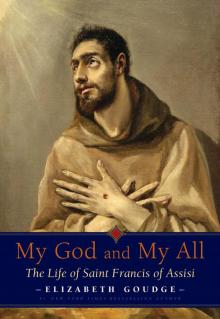 My God and My All
My God and My All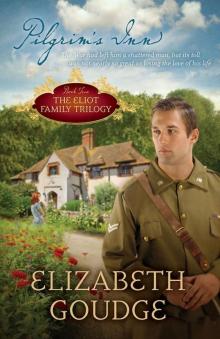 B00CKXCNH8 EBOK
B00CKXCNH8 EBOK